Darwin Bishop Charles Gauci’s concerns over protections for Voluntary Assisted Dying conscientious objectors
A Darwin religious leader has raised his concerns that doctors and nurses will be ‘coerced’ into referring their terminal patients to Voluntary Assisted Dying providers, following the release of a major report.
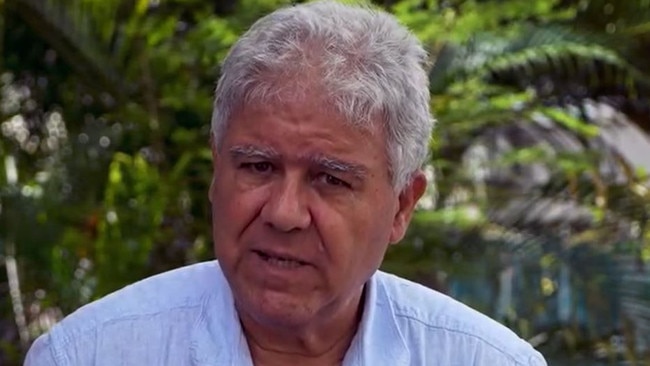
Politics
Don't miss out on the headlines from Politics. Followed categories will be added to My News.
UPDATE, Thursday 5pm: The Head of the Territory’s Catholic Church has promised to not run a “scare campaign” against future voluntary assisted dying legislation, while advocating for clearer provisions for doctors morally opposed to assisted suicide.
Following the released of an independent expert report into voluntary assisted dying (VAD) in the NT, Bishop of the Roman Catholic Diocese of Darwin Charles Gauci has committed to “transparency and honesty” during debates over the divisive issue.
“Running a scare campaign would be against my principles and my integrity,” Bishop Gauci said.
“A scare campaign to me would be totally unacceptable and totally unintegral.”
After becoming the first place in the world to offer doctor-assisted suicide in 1995, the Territory was hit by a religious scare campaign largely targeting remote Indigenous Territorians with rumours of ‘involuntary euthanasia’ if they visited a public health centre.
Currently the Territory is the only place in Australian without VAD legislation.
Bishop Gauci said the 14 months of consultation had produced a “thoughtful” report, but still held some reservations around the recommendations and warned against a “slippery slope” of eligibility.
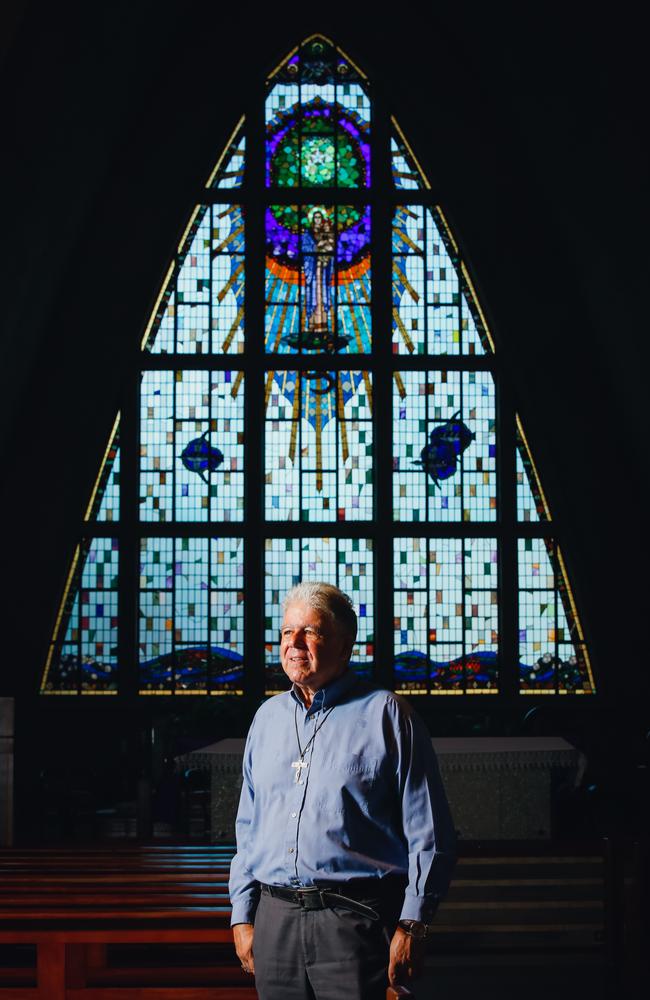
“We feel it’s dangerous for a society to go down this track,” he said.
“In the end people have to make up their own minds.”
His chief concern was that while health workers could opt-out of any VAD system, they were still required to refer their patients to providers who would assist them in accessing life-ending care pathways.
“There’s a cross-section of medical people that don’t feel comfortable with that (referral) and they still feel they are collaborating with VAD and violating their conscience,” Bishop Gauci said.
Bishop Gauci said the recommendation “coerced” medical professionals to refer their patients, turning conscientious objectors into “collaborators” in the VAD system.
“I think they need to be able to say ‘I respect your wishes, I respect your views, but it is not something I am personally involved with and you need to speak to someone else about that’,” he said.
Bishop Gauci said currently he was not calling for ‘gag orders’ on medical professionals raising VAD as an option with patients, and agreed that conscientious objectors should be required to inform their patients of their ethical position.
However he said further debate was needed over how these recommendation would work in practice.
The report also emphasised that residential facilities should not be able to “hinder” residents from being accessing VAD on site, meaning Territorians in a religious aged care centre could choose to end their life in their room.
Bishop Gauci said this recommendation was “complicated”, and said in other jurisdictions religious institutions had stated they could not be directly involved by holding the medication.
“(But) if they want to bring the medication, their own doctor or person wants to bring it in from outside, then it will be acceptable,” he said.
“That’s my first reaction, but I might take that back after I’ve spoken to my experts.”
The religious leader also raised some concerns with a recommendation that a person’s death certificate would not list VAD under their cause of death — but instead their underlying terminal condition.
“That would be the illness rather than acknowledging that VAD is what took the life of the person,” he said.
“There is some area of greyness there that causes me some discomfort.”
Widow of world’s first VAD patient ‘disappointed’ with report
INITIAL, Thursday 5am: The widow of the world’s first voluntary assisted dying patient has voiced her ‘disappointment’ that dementia patients and people facing long-term “intolerable suffering” could be denied life-ending care in the Territory.
NT Voluntary Euthanasia Society president Judy Dent said she was “disappointed” with the 22 recommendations in the independent expert advisory panel’s report, released on Wednesday.
For Ms Dent this debate is deeply personal, after watching her husband Bob choose to die on his own terms rather than face a slow death as his prostate cancer spread through his bones.
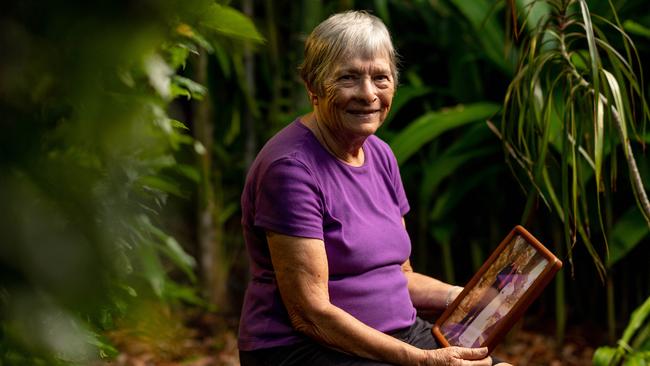
On September 22, 1996, the Darwin man became the first person in the world to legally end his own life under the NT’s Rights of the Terminally Ill Act — choosing to die a comfortable death with his wife by his side.
In a letter he dictated to Ms Dent in his final moments, Bob called the Voluntary Assisted Dying scheme “the most compassionate piece of legislation in the world”.
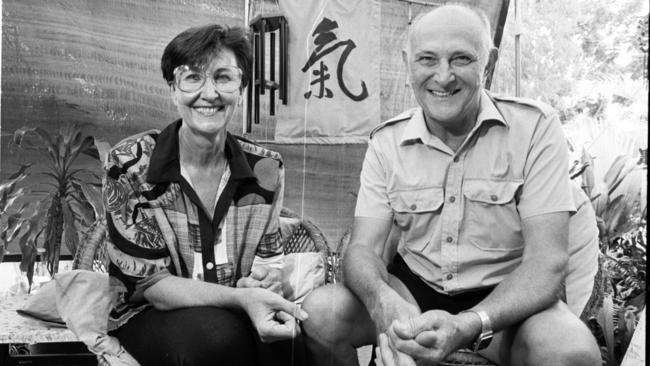
“For months I have been on a rollercoaster of pain made worse by the unwanted side-effects of the drugs,” Mr Dent said.
“If you disagree with voluntary euthanasia, then don’t use it, but don’t deny me the right to use it if and when I want to.”
Following the repeal of a 25-year federal gag order on the NT and ACT parliaments, the Territory expert panel recommended reintroducing a VAD scheme “broadly consistent” with policies in other Australian jurisdictions.
But the VAD report recommended only patients with an expected 12 months left to live should be able to access the scheme — meaning those living in “intolerable suffering” with a longer time frame were unable to access life-ending treatments.
The recommendations also ruled out allowing dementia patients to access the scheme, despite 71 per cent of almost 1400 surveyed Territorians saying they believed people should be able to indicate their end-of-life wishes through an advanced personal plan.
Ms Dent said these critical elements were part of the NT Voluntary Euthanasia Society submission to the Expert Advisory Panel.
“We were disappointed that our concerns were not validated by the July report,” she said.
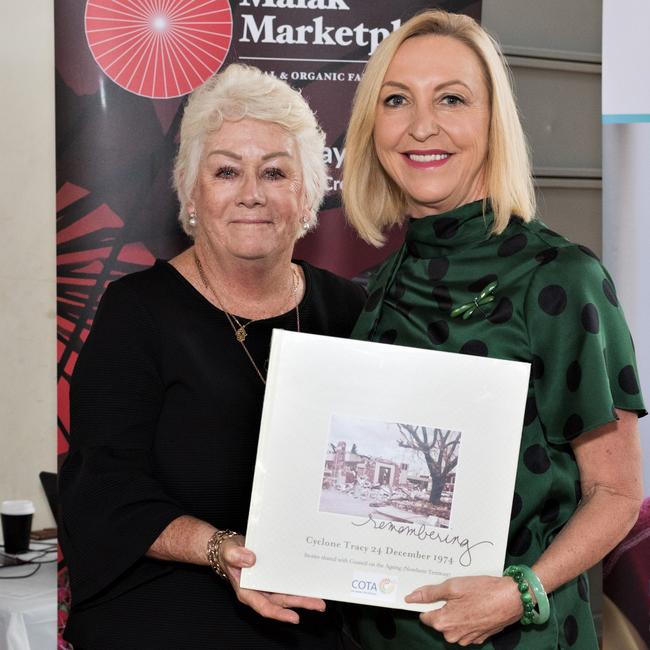
But Council on the Ageing NT chief executive Sue Shearer said allowing dementia patients to access a future scheme was a “bridge too far”.
Ms Shearer said allowing VAD for patients — who may no longer be able to fully consent to the treatment — provided too great a risk for elder abuse or coercion.
She said COTA could not support VAD for those with cognitive degenerative diseases “until we’re really convinced that the safeguards are in place”.
“That the person makes that decision before they start dementia while they have the cognitive ability, and that their loved ones are making the decisions on their behalf properly.”
The expert panel member said she was aware of too many examples of people with dementia being taken advantage of, while there were countless examples of those with the disease still experiencing joyful, love-filled lives.
“It is not an intolerable, suffering disease — it is to someone watching their loved one,” Ms Shearer said.
She said down the line amendments could consider expanding the program to include advanced personal plans, but the current proposal aimed to remain in line with the rest of the nation.
Ms Shearer said any Territorian facing the early stages of dementia who wished to access the scheme at a future point, could include VAD conditions in their advanced personal plans in anticipation of future legislative changes.
“But the hardest thing is knowing when? When they can’t eat? When they can’t walk? When they can’t talk? Or when they’re in nappies?” she said.
“At what stage is intolerable suffering?
“They’re the hardest questions that people need to ask.”





